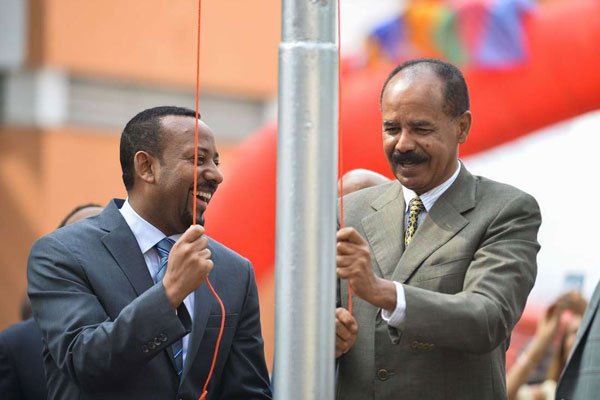Djibouti border dispute could roil Ethiopia-Eritrea peace deal

The decision by Ethiopia and Eritrea to abandon war paths for peace and re-establish diplomatic and economic links has gotten everyone’s praise.
Kenya, for instance, argued it meant one less problem for the region and “a step closer to lasting peace and stability” in the Horn of Africa.
Even the UN Security Council said in a statement: “This represents a historic and significant development with far-reaching positive consequences for the Horn of Africa and beyond.”
But that growing rapprochement between Prime Minister Abiy Ahmed and President Isaias Afwerki seems to have angered Djibouti, another of Eritrea’s neighbours.
Last week, Djiboutian Ambassador to the UN Siad Doualeh wrote an open letter to the UN Security Council to mediate in their border dispute with Eritrea.
Mr Doualeh asked for a judicial settlement which would be legally binding to both sides.
The border dispute between Djibouti and Eritrea is perennial, starting from the colonial days when the former was under French administration while the latter under the Italians.
They have argued over ownership of the area called Ras Doumeira since the 1900s. They clashed in 2008, leading to several deaths. The UN Security Council responded by imposing sanctions an arms embargo on Eritrea over claims Asmara was financing trouble-makers in the Horn.
In actual sense, Djibouti had gained the most when Ethiopia and Eritrea were fighting, getting 95 per cent of all Ethiopia’s importation deals coming through its ports as Asmara sealed off sea route for Addis Ababa.
The peace deal has seen Ethiopia renew interest in importing through Eritrea, which could in the near future deny Djibouti business.